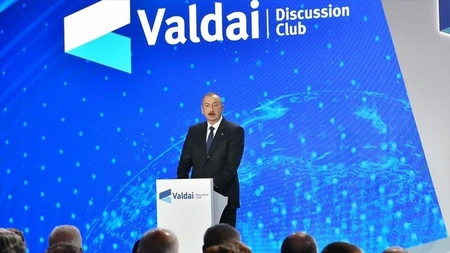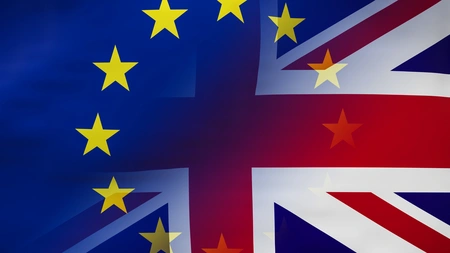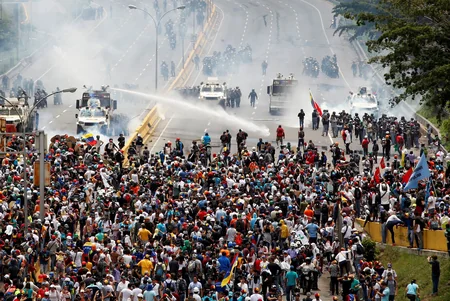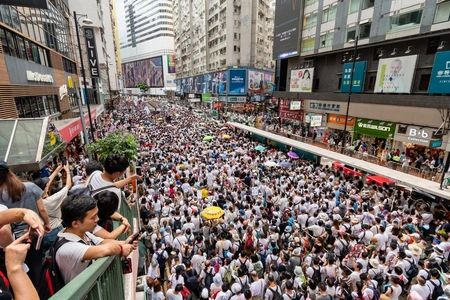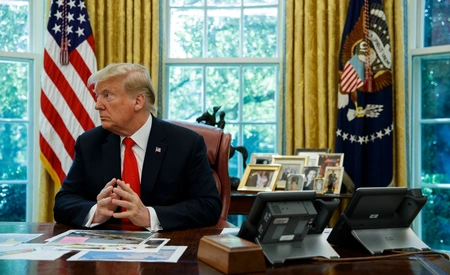Main events of 2019 in Azerbaijan and in the world - REVIEW
- 30 December, 2019
- 13:36
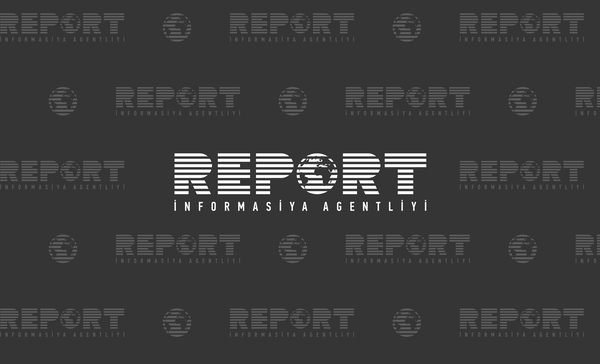
The outgoing year 2019 was marked by several events that influenced global geopolitics.
Report News Agency prepared an annual compilation of the main events.
Attempts to impeach Donald Trump
The internal political struggle in the United States, and an attempt by the Democrats to pass a vote of no confidence in President Donald Trump, were probably the most memorable events of the outgoing year 2019.
Speaker of the United States House of Representatives Nancy Pelosi initiated the investigation into Donald Trump's impeachment on September 24 when an anonymous source claimed that Trump put pressure on Ukrainian President Volodymyr Zelensky in July 2019 in his own personal and political gains. The source said the US president allegedly tried to persuade Kyiv to investigate the involvement of Hunter Biden, the second son of former US Vice President Joe Biden, in corruption schemes in exchange for financial and military assistance. As a result, the White House, under pressure, published the text of a conversation between Trump and Zelensky, which confirmed the request for the Ukrainian president to "sort out" Biden's issue.
The Democrats-led House of Representatives has impeached US President Donald Trump for obstruction of Congress and abuse of power related to his dealings with Ukraine.
Wednesday's landmark vote on impeachment comes after a more than two-month inquiry by House Democrats, who accuse the president of pressuring Ukraine to open an investigation into the president's political rival and former vice president, Joe Biden, who is also a frontrunner in the 2020 Democratic presidential race.
They also charge that the president obstructed their investigation by refusing to comply with subpoenas and directing members of his administration to do the same.
The votes made Trump only the third president in US history to be impeached and set the stage for a likely trial in the Republican-led Senate in January.
No president has ever been removed from office via the impeachment process set out in the Constitution, and Republican senators have given little indication of changing that.
After voting in the House of Representatives, the decision of the lower house is transferred to the Senate, which should finally decide the fate of the US president. According to the Constitution, a decision on impeachment has a "privileged" status; therefore, the Upper House has to postpone all other issues and consider the impeachment issue first. US Senate Majority Leader Mitch McConnell promised to announce the start date of the impeachment in the upper house of the US Congress before December 22.
Brexit
The UK became the tensest point in European politics since conservatives and Labor have been falling over themselves over the Brexit issue for the third year now.
At the beginning of the year, Prime Minister Theresa May was defeated in parliament, at which MPs rejected her agreement to withdraw Britain from the EU. In March, the British Parliament again rejected the draft agreement on leaving the EU, while receiving legislative, technical delay on the date of exit from the EU until April or May 2019. At the end of March, thousands took to streets in London demanding May's government to cancel Brexit. At the same time, an online parliamentary petition requiring the cancellation of Article 50 of the Lisbon Treaty to withdraw from the EU in a record time received over 5 million votes across the UK.
In late March, the House of Commons rejected a draft agreement on leaving the EU for the third time in a row.
At an emergency summit in Brussels on April 10, 2019, the EU heads of state decided to grant Britain another postponement, until October 31, 2019, this time, however, in case of refusal to hold elections to the European Parliament, which took place at the end of May 2019, UK should have left the EU even earlier (June 1, 2019).
On July 24, 2019, Boris Johnson took over as British Prime Minister. He expressed a wish under any circumstances to withdraw Great Britain from the EU on October 31, 2019, even if this required sharply breaking ties with the European Union.
On August 28, 2019, the British government requested the Queen to suspend the parliament until October 14. As an excuse, Prime Minister Boris Johnson used the procedure for preparing and promulgating a new government program. The Queen approved the suspension of parliament. This step of the prime minister sparked outrage among his opponents on Brexit, who constituted the majority in the House of Commons. They stated that Johnson deprived them of the opportunity to participate in the Brexit process fully and called Johnson's behavior unconstitutional. On September 9, 2019, the British Parliament passed a law that obligatorily postponed country's exit from the EU for three months (until January 31, 2020) if an agreement with the EU is not signed by October 31.
On September 11, the High Court of London decided that the issue of suspension of parliament was purely political and should not be considered in court. Appeals against decisions in both cases were examined by the Supreme Court of Great Britain, which on September 24, 2019, unanimously decided that the suspension of parliament was illegal. On October 28, 2019, the Council of the European Union agreed to postpone the UK's exit from the union for another three months, until January 31, 2020. Boris Johnson sent a request for a postponement against his will, obeying the law, adopted by the opposition majority in early September.
Hong Kong protests
2019 Hong Kong protests were an ongoing series of demonstrations in Hong Kong triggered by the introduction of the Fugitive Offenders amendment bill by the Hong Kong government. If enacted, the law would have allowed the extradition of criminal fugitives who are wanted in territories with which Hong Kong does not currently have extradition agreements, including Taiwan and mainland China. That led to concerns that the bill would subject Hong Kong residents and visitors to the jurisdiction and legal system of mainland China, thereby undermining the region's autonomy and Hong Kong people's civil liberties. As the protests progressed, the protesters laid out five key demands. These demands include the withdrawal of the bill, investigation into alleged police brutality and misconduct, the release of arrested protesters, a complete retraction of the official characterization of the protests as "riots," and Chief Executive Carrie Lam's resignation along with the introduction of universal suffrage for election of the Legislative Council and the Chief Executive.
Despite the demonstration by hundreds of thousands of people – perhaps even more than 1 million (according to organizers) – on June 9, the government proceeded with the bill. Protesters gathered outside the Legislative Council Complex to stall the bill's second reading on June 12, resulting in an intense standoff between the protesters and the police, who deployed tear gas and rubber bullets. An even bigger march took place on June 16, just one day after the suspension of the bill, as protesters insisted on the complete withdrawal of the bill and reacted to the perceived excessive use of force by the police on June 12. The anniversary of the handover on July 1 marked the storming of the Legislative Council Complex, which was largely viewed as a watershed moment for the protest. Subsequent protests throughout the summer spread to different districts, and there were confrontations involving the police, activists on both sides, suspected triad gangs, and local residents. The police's inaction when suspected triad members assaulted protesters and commuters in Yuen Long on July 21 and the police storming of Prince Edward station on August 31 caused a further escalation of the protests.
Lam suspended the extradition bill on June 15 and declared the bill "had passed away" on July 9, but refused to withdraw it until September 4. The bill was finally withdrawn on October 23, but the government refused to concede on the other four demands. Large-scale demonstrations occurred on October 1, the 70th anniversary of the People's Republic of China. During a skirmish in Tsuen Wan, an 18-year-old protester was shot whilst swinging a rod at a police officer. Claiming to curb further protests, Lam invoked the Emergency Regulations Ordinance on October 4 to implement an anti-mask law, to counterproductive effect. As the protests dragged on, confrontations escalated as both sides became increasingly violent. The number of police brutality and misconduct allegations increased, with Amnesty International accusing the force of torturing some detainees. Some protesters escalated their use of radical methods such as throwing petrol bombs to confront the police. Rifts within the society widened as activists from both sides have assaulted each other, in which hardcore protesters conducted vigilante attacks against perceived provocateurs in response, and vandalized supposed pro-Beijing entities. The deaths of students Chan Yin-lam in September and Chow Tsz-lok in November, as well as the shooting of an unarmed 21-year-old protester in November, further intensified the protests. Protesters have also occupied university campuses to block key thoroughfares. The police reacted by besieging the Chinese University of Hong Kong (CUHK) and Hong Kong Polytechnic University (PolyU), which resulted in a large number of injuries and arrests.
Protests in Venezuela
Protests in Venezuela are a collection of demonstrations that have been organized, since January 11, as a coordinated effort to remove Nicolás Maduro from the presidency. Events began following Maduro's controversial second inauguration, developing into a presidential crisis between Maduro and National Assembly President Juan Guaidó. The protests also include counter-demonstrations organized by those who support Maduro.
The authorities of Russia, China, Bolivia, Cuba, Mexico, Nicaragua, El Salvador, Iran, Turkey, and South Africa expressed support for Maduro.
In February, the opposition said that the Venezuelan army blocked the Tienditas bridge on the border with Colombia, through which it was planned to organize the delivery of humanitarian aid from a point in the border town of Cucuta. The United States sent food, personal hygiene products, as well as medicines and medical equipment there without the consent of the Venezuelan government. The local branch of the Red Cross refused to participate in the delivery of goods from Colombia, citing the need to "guarantee the exclusively humanitarian nature of the mission" and comply with the "principles of neutrality and impartiality."
On February 23, by order of Nicolás Maduro, troops were deployed on the border with Colombia, additional units were sent to the west of the country to "protect the world after the border closed."
Supporters of Maduro blocked the road for humanitarian aid trucks attempting to enter the country.
Juan Guaido himself, contrary to the ban on leaving the country, arrived in Colombia by helicopter on February 22, and then, along with Colombian President Ivan Duque Marquez, came on the border with Venezuela. According to him, the Venezuelan military helped him cross the border. Later, Deputy Judge of the Venezuelan Supreme Tribunal of Justice Juan Carlos Valdez threatened Guaido with 30 years in prison due to violation of the ban on leaving the country. The Venezuelan prosecutor's office began an investigation in the case.
A coup attempt, which Guaido called the final phase of Operation Freedom, took place in April-May. On May 1 night, Maduro sent a message to the nation, announcing victory over coup attempt in the country. He did so in the presence of the Defense Minister and other high-ranking officials of the state.
Azerbaijan in the international arena
Azerbaijan has seen significant socio-political and socio-economic developments this year, with Baku hosting several major events, including the summit of the Non-Aligned Movement (NAM) and the anniversary meeting of the Cooperation Council of Turkic-speaking states.
Political analyst Ilgar Velizade emphasized that the summit of NAM, the second-largest organization after the UN, was significant for official Baku that took over the chairmanship in this organization.
"I also want to note the summit of the Cooperation Council of Turkic-speaking states in Baku, dedicated to the tenth anniversary of the creation of the format, where for the first time the President of Uzbekistan participated as a full-fledged participant," Velizade said.
According to him, President Ilham Aliyev's visit to Sochi and his high-profile speech at the Valdai Discussion Club, as well as the visit of First Vice President Mehriban Aliyeva to Moscow with a full program of meetings and events also became important events for Azerbaijan.
President of Azerbaijan, addressing the consequences of the Armenian occupation, said that the four resolutions adopted by the UN Security Council regarding the settlement of the conflict remained unimplemented for more than 25 years. In response to the statements of the Armenian Prime Minister, President Ilham Aliyev made it clear to the world that Karabakh is a historical and ancestral land of Azerbaijan.
"Karabakh is Azerbaijan and the exclamation mark," the president said.
"All these events, for Azerbaijan, for its foreign policy, have an exceptional impact on the foreseeable future, because they place an emphasis that helps determine the main trends and the spectrum of interests," the Azerbaijani expert noted.
Velizade called the launch of TANAP, president's participation at "One belt, one way" summit, and EU President Donald Tusk's trip to Baku, the 'most essential events for Azerbaijan.'
On his part, expert Tofig Abbasov believes that 2019 was successful not only in terms of positive economic indicators but also because Azerbaijan has significantly improved its international position.
"You know that international rating agencies, and then the World Davos Forum, very actively evaluate the position of Azerbaijan in the economic field. According to their estimates and indicators, Azerbaijan is among the top 10 competitive countries. This country is the one with a developing economy, and, most importantly, Azerbaijan contributes a very high coefficient of action to international integration," Abbasov added.
According to him, through the efforts of President Ilham Aliyev, Azerbaijan initiated the most significant projects in Eurasia in recent years, making an exceptional contribution and giving an additional impetus to geo-economic cooperation.
"They dramatically simplify communication, and, on the other hand, they provide all possible assistance in transporting goods along the East-West and North-South transport corridors, which will come into full operation soon. In this sense, the breakthrough achieved by Azerbaijan in TANAP project also plays a great role in the future of the Eurasian space. Azerbaijan remains the guarantor of European energy security," the political scientist added.
"Many countries on the continent, including the European Union, not to mention the post-Soviet space, see Azerbaijan as a reliable partner with which it is necessary to arrange new paradigms of interaction," Abbasov said.
He also pointed out that during the year, Azerbaijan was actively increasing its bilateral ties with several countries, including the Russian Federation, adding that "Russia is our best partner and northern neighbor."
"We maintain relations in various formats in the Caucasian region since Azerbaijan is participating in the development of security and interaction plans. These are Azerbaijan-Russia-Iran, Azerbaijan-Russia-Turkey, Azerbaijan-Turkey-Iran. Azerbaijan locates precisely at the epicenter of these working configurations and maintains stable, guaranteed security in the region, provides measured actions for transport, communication, and energy projects, and, finally, implements a policy of predictable stabilization," the political scientist said.
"Azerbaijan has shown how to implement plans in geopolitics, geoeconomics, in the outgoing year 2019, showing that there is no alternative to common sense, calculations and, most importantly, very justified types for implementing important strictly demanded projects of international importance. It is essential to note the conceptual approach of President Ilham Aliyev to solving the problems of the country, region, and the whole continent. In the international circles, Azerbaijan is perceived as a successful country, developing its industry, economy, its national potential, while at the same time providing all possible assistance to its allies and partners," Abbasov added.
